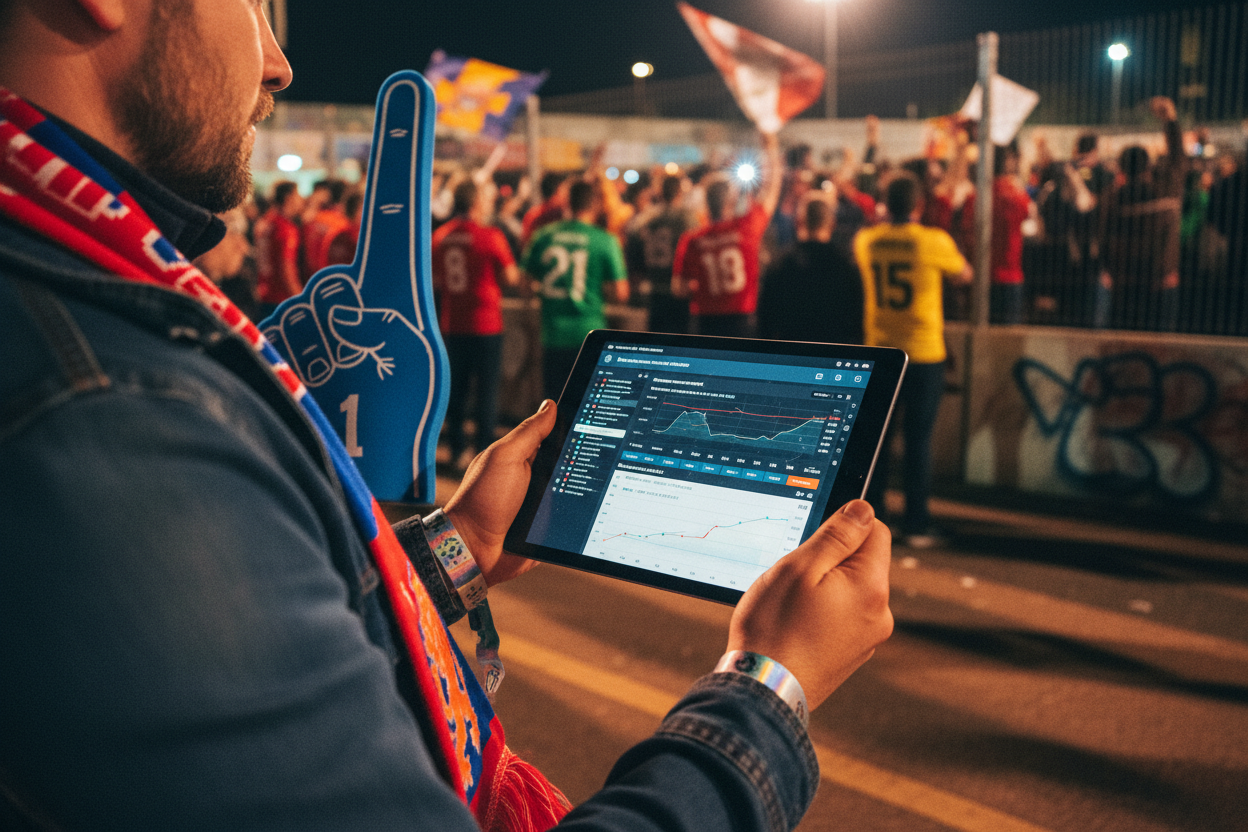
Sports fandom is entering a new era, one where loyalty and engagement are not just celebrated but verifiably rewarded on-chain. As the global sports industry approaches a projected $600B valuation by 2030, fans are demanding more than passive consumption. They want ownership, recognition, and tangible rewards for their participation. SCORProtocol is emerging as a pivotal force in this transformation, leveraging blockchain to turn every action, from attending games to winning prediction challenges, into an on-chain asset that can be recognized and rewarded across the Web3 sports economy.

The Engine of Programmable Fandom
At the core of SCORProtocol’s innovation is its Fan Engagement Protocol, an on-chain engine designed to record and reward every verifiable fan interaction. Unlike traditional loyalty programs or isolated fan tokens, SCORProtocol registers sports intellectual property (IP) on a universal ledger. This approach allows fans to interact directly with official team assets, be it digital collectibles, trivia games, or prediction contests, and have those interactions immutably recorded as part of their on-chain identity.
This interoperable identity is called the SCOR-ID. It acts as a persistent digital passport for fans across different teams, leagues, and platforms. Whether you’re collecting limited-edition memorabilia from your favorite club or topping the leaderboard in mini-games powered by Sweet, your achievements accumulate into a portable reputation that can be recognized by any sports organization plugged into the protocol.
Turning Engagement Into Real Rewards
The true power of SCORProtocol lies in its ability to turn passion into programmable value. Every time a fan participates, by attending an event (digitally or physically), predicting outcomes, or interacting with exclusive content, a portion of platform transaction value flows back to them via a community rewards pool. In fact, 33.3% of all transaction value is earmarked for this purpose, creating a direct economic link between engagement and reward.
The system’s native currency is the $SCOR token, operating on The Open Network (TON) blockchain for high performance and scalability. With 44% of its fixed 4 billion token supply allocated specifically for ecosystem growth, including in-game rewards and community incentives, the protocol ensures that early adopters and active participants are meaningfully rewarded.
Gamification plays a central role here: integrations with platforms like Sweet allow users to earn Gems through mini-games themed around real-world teams and sporting events. Gems can then be converted into $SCOR tokens that unlock digital collectibles, team merchandise, premium upgrades, or even real-world perks such as season tickets. This creates an interactive loop where every action feeds back into deeper fandom, and greater potential rewards.
Redefining Ownership: From Spectator to Stakeholder
The implications go far beyond simple points or badges. By anchoring fan activity to verifiable on-chain records via SCOR-ID, fans become stakeholders in their favorite teams’ ecosystems rather than mere spectators. Sports organizations gain access to transparent data about who their most dedicated supporters are, and can tailor experiences or exclusive offers accordingly.
This shift addresses decades-old pain points: loyalty becomes portable (not locked within one club’s app), achievements are provable (not subject to manipulation), and value accrues directly to those who contribute most actively, not just intermediaries or platforms. As more clubs adopt these standards and integrate with protocols like SCOR, we’re likely to see the rise of truly programmable fandom economies, where reputation translates into real-world benefits both inside stadiums and across digital communities.
SCORProtocol’s approach is already sparking discussion across the sports and blockchain communities. The protocol’s transparent, on-chain model is lauded for bringing clarity to fan engagement metrics and for creating a meritocratic system where rewards are earned, not given arbitrarily. This has the potential to fundamentally alter how fans perceive their relationship with teams, leagues, and even fellow supporters.
One of the most compelling aspects is the interoperability of SCOR-ID. Fans are no longer siloed within a single platform or forced to rebuild their reputation from scratch when they switch teams or apps. Instead, their achievements and contributions travel with them across the growing Web3 sports ecosystem. This portability fosters a sense of continuity and personal investment, making every interaction matter in a broader context.
The integration with platforms like Sweet also demonstrates the flexibility of SCORProtocol’s infrastructure. By enabling fans to earn Gems through gameplay that reflects real sporting events and outcomes, SCOR bridges the gap between digital engagement and tangible rewards. Gems converted into $SCOR tokens can be used for everything from digital memorabilia to exclusive access experiences, effectively creating a two-way street between virtual participation and real-world value.
A Blueprint for the Web3 Sports Economy
As more sports organizations recognize the value of programmable fandom blockchain solutions, SCORProtocol stands out as a blueprint for future fan engagement models. Its commitment to transparency, allocating 33.3% of all transaction value directly to community rewards, ensures that fans are not just participants but beneficiaries in this new economy.
This shift toward fan-centric economics could have ripple effects throughout the global sports industry. With over 44% of $SCOR’s supply dedicated to ecosystem growth, there is ample incentive for both early adopters and established clubs to embrace these new standards. As protocols like SCOR mature, expect loyalty programs to be replaced by interoperable reputation systems that reward skill, dedication, and creative participation, not just spending power.
The result? Fans who invest their time and passion into their favorite teams will see that effort reflected in tangible ways: exclusive collectibles, voting rights on team decisions, or even revenue sharing from certain activities. This evolution positions SCORProtocol at the forefront of a movement where ownership in sports fandom becomes as real, and as valuable, as any other asset class in Web3.
For those interested in a deeper dive into how programmable fandom economies are reshaping the industry landscape, and what it means for both fans and organizations, explore our coverage at How SCORProtocol Is Transforming Sports Fandom Into On-Chain Ownership And Rewards.









